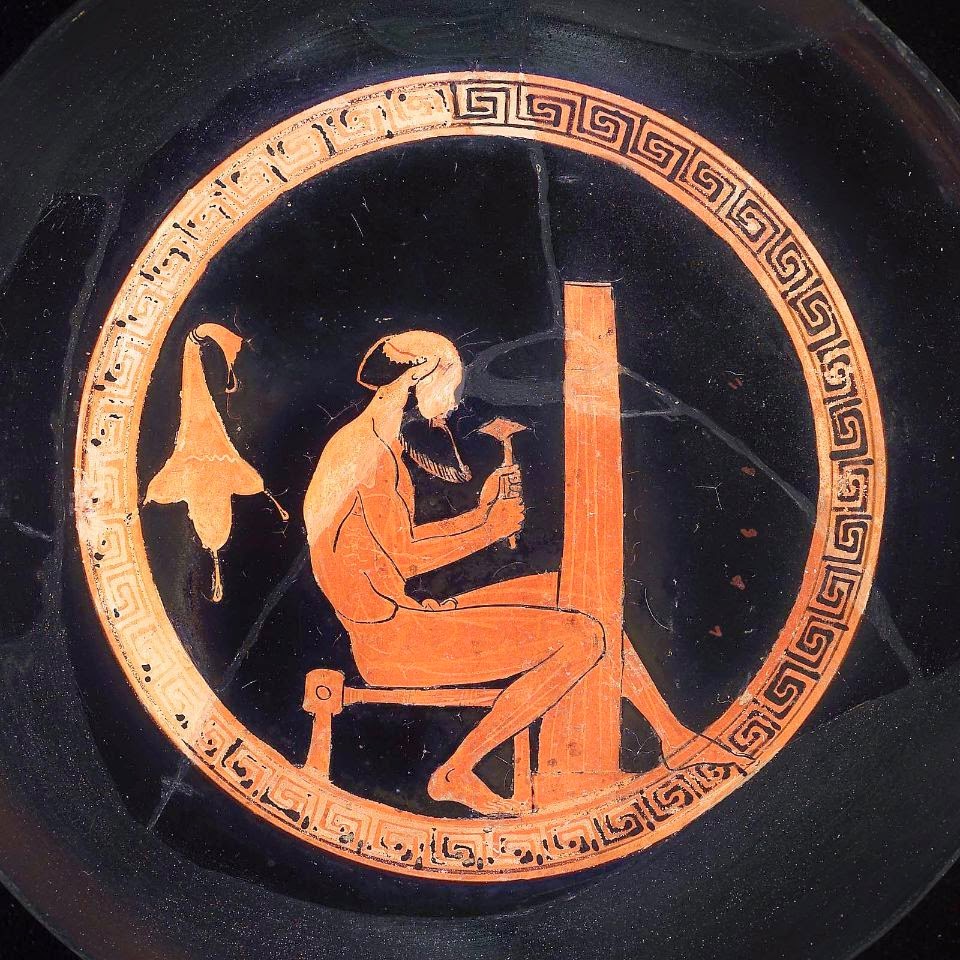There are some things I still find puzzling:
a. There is no need to think that these changes that make up the overall business of making a temple have to happen in a sequence such that we cannot start making a triglyph until we’ve put down the base. True, we certainly can’t put the roof on until the columns are up. But if we think that constructing the Parthenon took a certain length of time to complete, it’s not true that making the base and carving the triglyph are distinct temporal parts in the sense that they are non-overlapping periods within the overall period of constructing the Parthenon. Indeed, it seems possible that the base was constructed and the triglyph was carved at the same time: these processes both took place over the very same duration and lasted exactly the same length of time. So perhaps this is just to say that I don’t find the temple-building case such a clear illustration of the general point he wants to make because I don’t think it is a prima facie analogue of a potential counter-example.
b. What is the motivation for this strange example? Here I wonder if there is just some metaphysical background we don’t have spelled out in full. Later in the chapter we are referred for more information to the Physics so perhaps that is the next place to look. Perhaps he thinks he might be under fire from some smart reader who thinks that if you chop a change up into smaller temporal parts we might say that some parts are complete when the whole is not.
c. What does Aristotle himself say about cases like the pleasures we experience in the process of quenching a thirst? Take a moment or period during the whole change: the whole change is not yet complete. But nevertheless it seems odd to maintain that we are not enjoying removing the thirst. In book 7 Aristotle takes the view that cases such as the pleasures involved in the process of being restored to health ought to be understood as due to the activity of the remaining healthy part. He claims that this sort of thing is pleasant per accidens because there is the ‘activity [energeia] of the underlying condition and nature’ (7.12 1152b33–1153a2; see also 1154b17–20). It's not entirely clear what he means by this but it is evident that he wants to locate an activity somewhere and attributes this to some part of aspect of the patient that is in the healthy state even as health is being restored [1].
 |
| Some people restoring a temple. Note that the columns have been fluted... |
What is different between this case and the construction of a temple? Can’t I say that in both there is an energeia of a complete state: in one case part of the person is hydrated and in a natural state and in the other case part of the temple has been completed? In both cases the amount of the person that is hydrated and healthy and the amount of a temple that is completed gradually increases? Is this different from the temple-building case because it is a return to a natural condition? So the analogue between the pleasure of restoring health would be the restoration of a temple (where there is always some of the complete temple present) rather than the construction of a new temple. But in that case, why should it matter whether, so to speak, this is a restoration or a new build?
[1] J. Aufderheide 2013,‘Processes as pleasures in EN vii 11–14: a new approach’, Ancient Philosophy 33: 135–57 has some important remarks about how we should analyse occasions like the pleasures of being restored to health. When an animal heals or sustains itself, for example, the agent-activity involved is the activity of the residual natural state. (This is doing the job that is performed by the doctor in the case where a patient is entirely passive and is healed solely through the agency of someone else.) It is this activity, in fact, which is a pleasure. It is the activity of this healthy part which is responsible for the pleasure. The person’s undergoing the process is only incidentally pleasant. See also Frede, D. (2009) ‘NE VII.11–12: Pleasure’, in C. Natali (ed.) Aristotle: Nicomachean Ethics VII. Oxford: Oxford University Press: 183–208 194-5.

